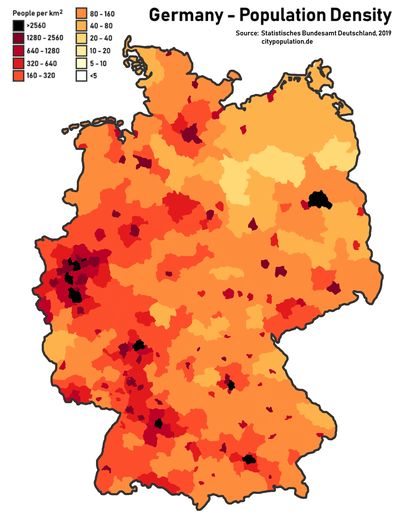How much did you know about Germany demographic? Give it a try here
Demographics of Germany
The demography of Germany is monitored by the Statistisches Bundesamt (Federal Statistical Office of Germany). According to the first census since reunification, Germany's population was 80,219,695 (9 May 2011),[5] making it the sixteenth-most populous country in the world and the most populous in the European Union. The total fertility rate was rated at 1.57 in 2018.[4] In 2008, fertility was related to educational achievement (women with lower levels of education were having more children than women who had completed higher education).[6] In 2011, this was no longer true for Eastern Germany, where more highly educated women now had a somewhat higher fertility rate than the rest of the population.[7] Persons who said they had no religion tend to have fewer children than those who identify as Christians, and studies also found that conservative-leaning Christians had more children compared to liberal-leaning Christians.[8][9]


Comments